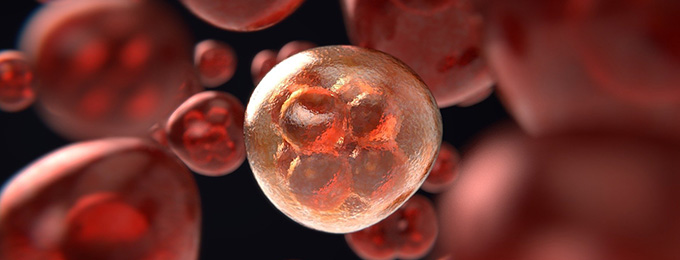The EU’s Beating Cancer Plan covers the entire disease pathway from prevention to quality of life and focuses strongly on R&I as a means to combat cancer.
On 3 February, one day ahead of the World Cancer Day, the European Commission presented Europe’s Beating Cancer Plan. Cancer is one of the leading causes for death in Europe; while Europe only accounts for 10% of the global population, it accounts for a quarter of the world’s cancer cases. The long awaited plan, which was postponed from an original publication date in late 2020, delineates the EU’s ambition to combat cancer with a holistic approach. The time for a new plan was definitely ripe, since the last EU action plan against cancer dates from the early 1990s, and science has led to substantial progress in cancer treatment since then.
The new cancer plan builds on four main areas of action covering the entire disease pathway of a cancer patient: prevention, early detection, diagnostics and treatment as well as care and improvement of life quality for patients and survivors. Over the coming years the plan will focus on research and innovation (R&I) in order to profit from the potential that digitalisation and new technologies offer and comes with an earmarked budget of €4 million, which includes contributions from European programmes such as EU4Health, Horizon Europe and Digital Europe. The plan covers multiple policy areas, and concentrates on measures where the EU can provide a value added, since health is a competency of the Member States themselves. As such, the plan is a key pillar of a stronger European Health Union and better-prepared and more resilient EU.
The core of the cancer plan consists of ten flagship initiatives, as well as multiple supporting actions to help Member States combat cancer and enable the sharing of resources across the Union, thereby supporting countries and regions with less knowledge and capacity. Beyond medical staff and patients, the delineated actions also specifically target researchers to help them exchange findings and access crucial health data, putting R&I at the service of patient-centered prevention and care. The Mission on Cancer within Horizon Europe and its ‘European Initiative to Understand Cancer’ (UNCAN.eu) will be a major component of the EU investment in cancer R&I. Further, Horizon Europe contributions include research infrastructures, actions of the European Innovation Council (EIC) as well as of the European Institute for Innovation and Technology (EIT). The European Partnerships ‘Innovative Health Initiative’ and ‘Transforming Health and Care Systems’ will capitalise on research and bring benefits directly to patients.
One of the ten flagship initiatives, the ‘Knowledge Centre on Cancer’ planned within the EC’s Joint Research Center (JRC), will help to coordinate all scientific and technical cancer-related initiatives at EU level and will contribute to the European Cancer Imaging Initiative, the Cancer Mission and the European Health Data Space. The latter, to be proposed at the end of 2021, shall enable patients to securely access and share their health data. The ‘European Cancer Imaging Initiative’ is the second R&I directed flagship and aimed at developing an EU ‘atlas’ of cancer related images from 2022. It will link image data to digital technologies, such as artificial intelligence and high performance computing, involving the new Testing and Experimentation Facilities under the Digital Europe Programme. The initiative will further improve personalised medicine and support innovative solutions, thanks to greater accuracy and reliability in minimally invasive diagnostics and follow-up of treatments. Furthermore, the expansion of the ‘European Cancer Monitoring System’ as of 2021 will include new indicators linked to cancer staging as well as a new section on childhood cancers and more detailed data at sub-national level, which will facilitate linkages with environmental and socio-economic data. This information will help to understand and finally tackle cancer better.
Many of the other actions and flagships within the cancer plan are not focused directly on R&I but have close links to it. In an effort to improve equal access to care across the EU, the EC will establish an ‘EU Network’ linking comprehensive cancer centers in all Member States by 2025. The network will facilitate the uptake of quality-assured diagnosis and treatment, including training, research and clinical trials across the EU and will receive support from the four rare-cancer focused European Reference Networks (ERNs), which will look at challenging cancer conditions that benefit from international cooperation. A new legal framework for clinical trials will introduce a coordinated and agile system for the assessment and oversight on trials in Europe. In addition, a roadmap to personalised prevention will identify gaps in R&I and prepare for a future Partnership on Personalised Medicine under Horizon Europe.
Members of the European Parliament’s Special Committee on Beating Cancer (BECA) already welcomed the Cancer Plan and discussed it with health Commissioner Stella Kyriakides on 4 February. They highlighted the importance of joint actions such as shared knowledge and databases, the support for screening programmes or the co-financing of HPV vaccinations for the benefit of cancer prevention. Currently, EU countries have unequal access to quality cancer care and are unequal in terms of prevention; actions such as a ‘Cancer Inequalities Registry’ to identify challenges as delineated in the plan are thus of great importance. Moreover, ambitious legislative proposals as those to reduce the consumption of alcohol and tobacco or promote a healthy diet and physical activity are the right steps by the EC towards addressing social, environmental and commercial health risk factors.

